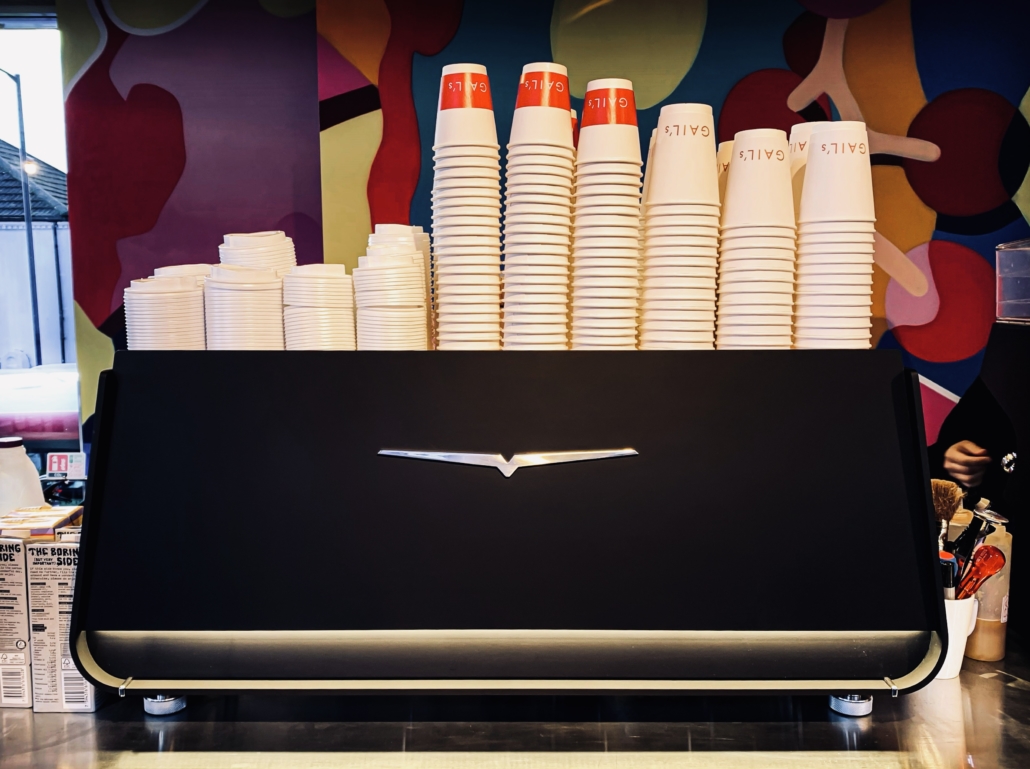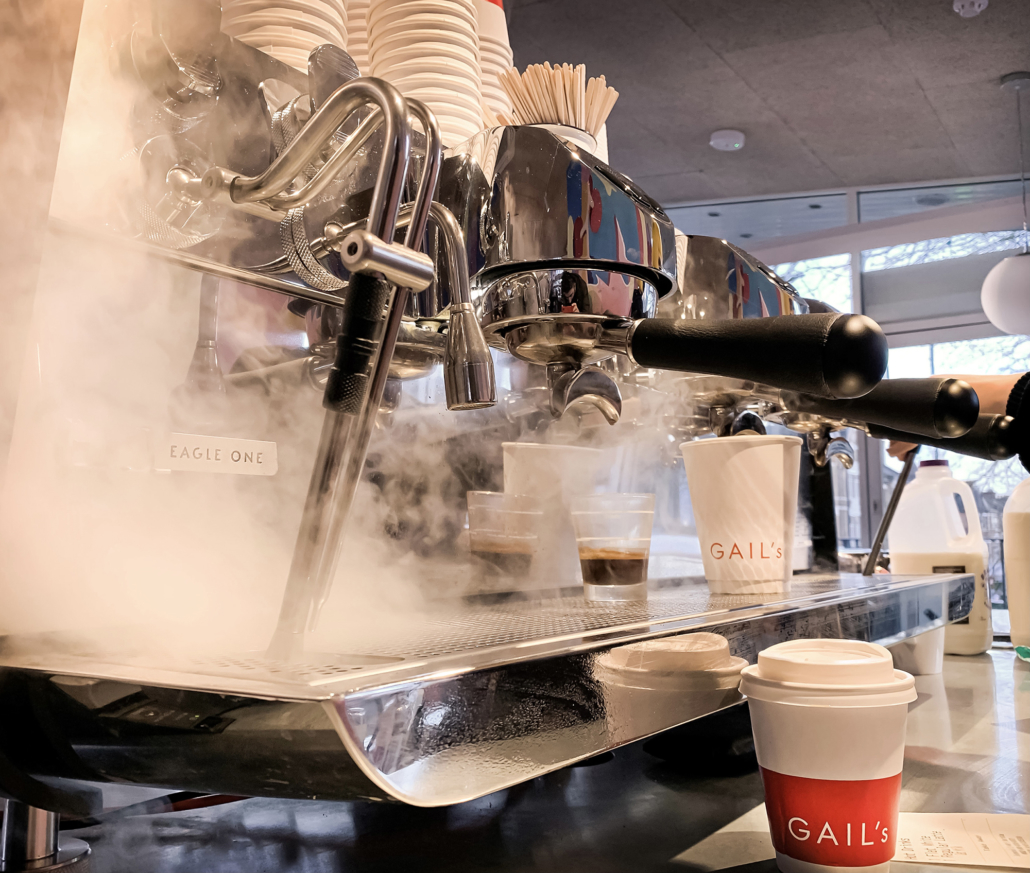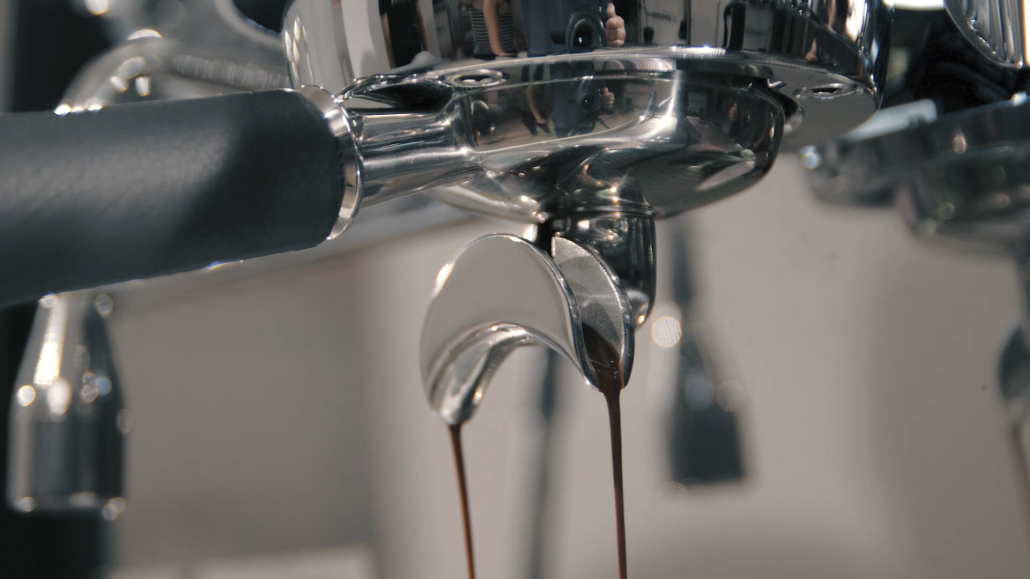How do cafés choose their coffee equipment?
For cafés, consistency is important. Delivering quality coffee that meets high standards time and time again is a key part of securing customer loyalty.
However, to achieve that consistency, it’s important to choose the right equipment. This ensures that customers will get the same, high-quality beverage no matter when or where they order it. Over a long-term period, this can help to boost brand recognition and loyalty.
To learn more about how cafe owners can choose the right coffee equipment for their business, we spoke with Jessica Worden from GAIL’s Bakery. Read on to find out what she said.
Aligning Your Values With Your Supplier
Jessica is the Head of Coffee for GAIL’s Bakery, a UK bakery that serves freshly baked bread, pastries, and cakes, as well as their own house blend coffee.
GAIL’s has grown from just a single shop in 2005 to now operate more than 60 locations across London, Oxford, Brighton, and beyond. High-quality equipment, as Jessica explains, has underpinned their growth throughout the past 15 years.
“We’re celebrating craft at the centre of everything that we do,” Jessica says. “It’s a closeness to the product and the equipment.” Jessica has worked at GAIL’s for over a decade and says this is a key part of the company’s core values. “At GAIL’s, we always work with like-minded businesses. We look for those who put time and care into the development of their products, work hard to source mindfully, and use traditional methods with a sustainable focus,” she explains.
It’s important that the equipment that café owners use complements the key attributes of their business, including their design. According to Jessica, each of GAIL’s bakeries reflects the surrounding neighbourhood, and their coffee equipment plays a key part in facilitating this.
“We decided to use the Eagle One to amplify the experience of GAIL’s carefully curated spaces,” Jessica says. “The Eagle One’s highly customisable exterior ensures that it suits the design and style of any cafe.” As well as aesthetics, however, quality and reliability are ultimately what café owners look for. Accuracy and precision have always been important in the coffee sector, and Jessica says that GAIL’s has recognised this.
“We started working with the Victoria Arduino Mythos One because it was designed to be more accurate with dosing,” Jessica explains. “We felt strongly that an accurate dose benefitted quality, but also contributed to the larger long-term sustainability of our business and its growth.”
The accurate dosing Jessica refers to is driven by a clump crusher system in the Mythos grinders that reduces the need to purge between doses, consequently limiting the amount of beans that are wasted. “From there, we explored the Mythos Two and, over the last year, we have started looking at [new] options for espresso machines.”
Quality Drives Education
When considering coffee equipment, it’s essential to factor in how much it’ll be used and who will be using it. Jessica tells us that equipment must be able to withstand heavy usage during busy rushes and cope with varying levels of user capability.
“Ideally, you want something robust that can accommodate the wide range of people who have access to it,” she says. “It needs a user-friendly interface and it needs to be intuitive in its design.” GAIL’s offers in-house SCA training, which allows baristas to develop their skills – but Jessica says that quality equipment is a fundamental part of the learning process.
“No matter how much training you implement, when you have equipment that’s unreliable, baristas become distant from it and it creates a barrier between the two,” Jessica explains. Instead, she says, your choice of equipment should highlight the skills of the barista, rather than overshadowing them.
“We’re not looking for equipment that ‘dumbs down’ the skill level,” she says. “We want to take advantage of the vast amount of technological innovation that’s going on in the coffee industry.”
The integrated touchscreen and app for the Eagle One allow baristas to best utilise the technology in the machine, allowing them to pull consistently high-quality espresso shots time and time again. Higher-quality equipment also helps to drive efficiency in a café.
Subsequently, this can increase employee and customer satisfaction, as drinks are served faster and queues are kept short. “Adding the Easy Cream steam wand to our workflow helped us reach a level that you would struggle to achieve with a traditional machine,” Jessica adds.
Thinking Sustainably
Whether it’s surplus food donation schemes or using recyclable and compostable packaging, GAIL’s has always had a focus on sustainability. However, Jessica says that this also drove their investment in sustainable coffee equipment.
“I was fascinated by the compact, sustainable design of the Eagle One and the TERS,” Jessica tells us. The Temperature Energy Recovery System (TERS) is a feature of the Eagle ONe that uses discharged water to preheat incoming water, resulting in an 8% saving on machine energy consumption.
Additionally, the New Engine Optimisation (NEO) feature of the Eagle One reduces energy waste by insulating its boilers and limiting heat dispersion. This is ultimately better for the environment, and also helps businesses to lower their energy costs.
However, it’s important to note that while high-quality equipment can support sustainability, driving efficiency and limiting waste in the coffee shop is ultimately down to the barista. It’s important that baristas are trained adequately with any new piece of equipment to get the most out of your machine.
“Our training focuses on teaching our baristas about the equipment so that they have total confidence when using it,” Jessica says. “Ultimately, this will reduce unnecessary waste and drive greater sustainability overall.”
Partnering with an equipment supplier that you can trust and choosing quality equipment that is reliable, efficient and innovative will help your café to develop and scale its operations. Ultimately, using the right equipment helps cafés to raise the quality of the coffee they serve, boost productivity, and improve the customer experience.






